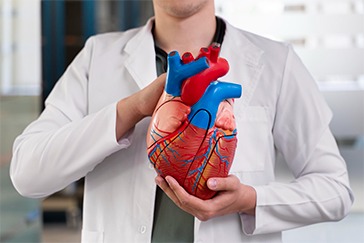 Book Appt.
Book Appt.
 Call Now
Call Now


Sudden cardiac arrest is a life-threatening event that affects many individuals, often with little warning. Implantable cardioverter-defibrillators (ICDs) have emerged as a crucial technology in preventing and managing these life-threatening situations. An ICD is a small device implanted under the skin, typically near the collarbone, to monitor and regulate heart rhythms. It is primarily used to treat ventricular arrhythmias, which can lead to sudden cardiac arrest.
The Procedure
Benefits of ICD Implantation
Considerations and Follow-up
ICD recipients require regular follow-up appointments to monitor the device's performance, check battery life, and make any necessary adjustments. The lifespan of an ICD battery can vary but typically lasts several years.
In conclusion, ICD implantation is a life-saving procedure for individuals at risk of sudden cardiac arrest. It offers a safety net that can detect and treat dangerous arrhythmias, potentially preventing a life-threatening event. If you or a loved one is at risk of sudden cardiac arrest, consult with a cardiologist to determine if ICD implantation is a suitable treatment option. Timely intervention and proper device management can make a significant difference in survival rates and overall cardiac health.
SHALBY Sanar International Hospitals provides extensive medical procedures backed up with our state-of-the-art technology and a team of highly qualified & experienced clinical experts.

Life-Changing TAVR Success Story | Dr. D.K. Jhamb | SHALBY Sanar International Hospitals

Timely Angiography Procedure Saves life of Iraqi Patient.

Rajiv Makhni, Managing Editor of NDTV, Shares His Experience at SHALBY Sanar International Hospitals

A successful treatment procedure helped Ms. Suri get over breathlessness
Our doctors pen down their research findings and experiences from time to time. Their words provide deep insight into the latest techniques, technologies and other advancements in healthcare. It provides expert answers to all kinds of health questions for real-life issues.
VIEW ALL




Since the day of its foundation, SHALBY Sanar International Hospitals is committed to provide comprehensive healthcare services. It regularly organizes awareness programs in its premises and encourages outdoor healthcare activities and camps with an intent to put focus on preventive healthcare.
VIEW ALL